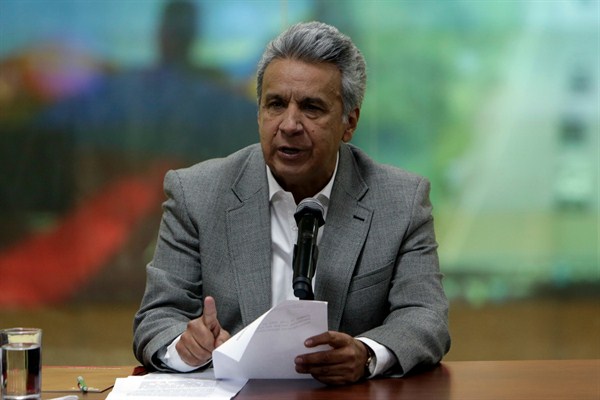Editor’s Note: This article is part of an ongoing series about press freedom and safety in various countries around the world.
On April 13, Ecuador’s president, Lenin Moreno, announced that two Ecuadorian journalists and their driver had been killed by Marxist rebels, who kidnapped them near the border with Colombia late last month, where they were investigating rising crime. Moreno revealed that the rebels were associated with a dissident faction of Colombia’s demobilized FARC guerrillas. The episode has raised alarms over the state of press freedom and safety in Ecuador, which witnessed a decade of media restrictions and intimidation under the government of former President Rafael Correa. In an email interview, Natalie Southwick, an Americas research associate for the Committee to Protect Journalists, discusses the long shadow of the Correa era and whether Moreno can do more to protect journalists.
WPR: What are the dangers and threats that journalists face in Ecuador, and what is driving them at the moment?

